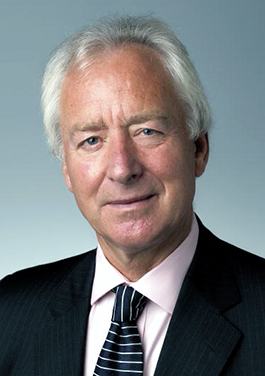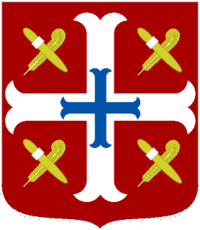Michael Spicer facts for kids
Quick facts for kids
The Lord Spicer
|
|
|---|---|
 |
|
| Chair of the 1922 Committee | |
| In office 20 June 2001 – 25 May 2010 |
|
| Leader | William Hague Iain Duncan Smith Michael Howard David Cameron |
| Preceded by | Sir Archie Hamilton |
| Succeeded by | Sir Graham Brady |
| Member of the House of Lords | |
| Life peerage 8 July 2010 – 29 May 2019 |
|
| Member of Parliament for West Worcestershire South Worcestershire, 1974–1997 |
|
| In office 28 February 1974 – 12 April 2010 |
|
| Preceded by | Gerald Nabarro |
| Succeeded by | Harriett Baldwin |
| Personal details | |
| Born |
William Michael Hardy Spicer
22 January 1943 Bath, Somerset, England |
| Died | 29 May 2019 (aged 76) London, England |
| Political party | Conservative |
| Spouse |
Patricia Ann Hunter
(m. 1967) |
| Children | 3 |
| Education | Wellington College |
| Alma mater | Emmanuel College, Cambridge |
| Awards | Knight Bachelor (1996) |
William Michael Hardy Spicer, also known as Baron Spicer, was an important British politician. He was born on January 22, 1943, and passed away on May 29, 2019. He was a member of the Conservative Party.
Lord Spicer was a Member of Parliament (MP) for West Worcestershire from 1974 to 2010. This meant he was elected by people in that area to represent them in the UK Parliament. He also served as a government minister from 1984 to 1990. Later, he became the chairman of the 1922 Committee from 2001 to 2010. After leaving the House of Commons, he became a life peer in the House of Lords in 2010, where he served until 2019.
Contents
Early Life and Education
Michael Spicer was born in Bath, Somerset, England. His father was L. Hardy Spicer, who was a high-ranking officer in the army. Michael went to school in Vienna and at Gaunts House Preparatory School. He also attended Wellington College.
He then studied economics at Emmanuel College, Cambridge, a famous university. After finishing his studies, he worked as a journalist. He wrote about money and business for newspapers like The Statist, the Daily Mail, and The Sunday Times. He also worked as a director for research and economic companies.
Parliamentary Career
Michael Spicer became a member of the Conservative Party. He first tried to become an MP in 1966, when he was the youngest person running for Parliament. He ran again in 1970.
In February 1974, he was elected as an MP for South Worcestershire. He represented this area until 1997. After some changes to the voting areas, he then represented West Worcestershire until he retired in 2010.
Government Roles
When the Conservative Party won the election in 1979, Michael Spicer started working in government. He became a Parliamentary Private Secretary at the Department of Trade. This role helps a minister with their work. He also became a Deputy Chairman of the Conservative Party.
From 1984 to 1987, he was a junior minister at the Department of Transport. He was specifically in charge of aviation, which means he helped make rules about airplanes and airports.
In 1987, he moved to the Department of Energy. Here, he was responsible for electricity and coal. In 1990, he was promoted to a more senior minister role at the Department of the Environment. However, he left the government later that year. This was because he disagreed with the government's policy on the European Exchange Rate Mechanism, which was about how the British currency related to other European currencies.
Later Parliamentary Work
After leaving the government, Michael Spicer became the chairman of the Parliamentary and Scientific Committee. This committee helps connect science and Parliament. In 1993, he started a group within the Conservative Party called the European Research Group. This group was interested in how Britain related to Europe.
In 1996, he was given a special honour by Queen Elizabeth II and became a Knight. After the 1997 election, he joined the Treasury Select Committee. This committee looks closely at how the government manages money.
Michael Spicer also wrote several books, including his diaries. In 2001, he was elected as the Chairman of the 1922 Committee. This is a very important group within the Conservative Party. He held this position until he retired in 2010.
As chairman of the 1922 Committee, he oversaw many leadership elections for the Conservative Party. Three different leaders were chosen while he was chairman: Iain Duncan Smith, Michael Howard, and David Cameron.
He was known in Parliament for asking short, direct questions to government ministers. He once asked Gordon Brown, who was the Prime Minister, "Will the Prime Minister confirm that he will soldier on to the bitter end?"
On March 26, 2006, Michael Spicer announced that he would retire as an MP in 2010.
Later Life and Honours
On July 8, 2010, Michael Spicer was made a life peer. This meant he became a member of the House of Lords for the rest of his life. He was given the title Baron Spicer, of Cropthorne in the County of Worcestershire.
In 2013, he became a member of the Privy Council at Buckingham Palace. This is a group of senior advisors to the Queen. Being a Privy Councillor allowed him to use the letters "PC" after his name.
|
Death
Michael Spicer passed away in London on May 29, 2019. He died from health problems related to Parkinson's disease and leukaemia.
 | Jewel Prestage |
 | Ella Baker |
 | Fannie Lou Hamer |



